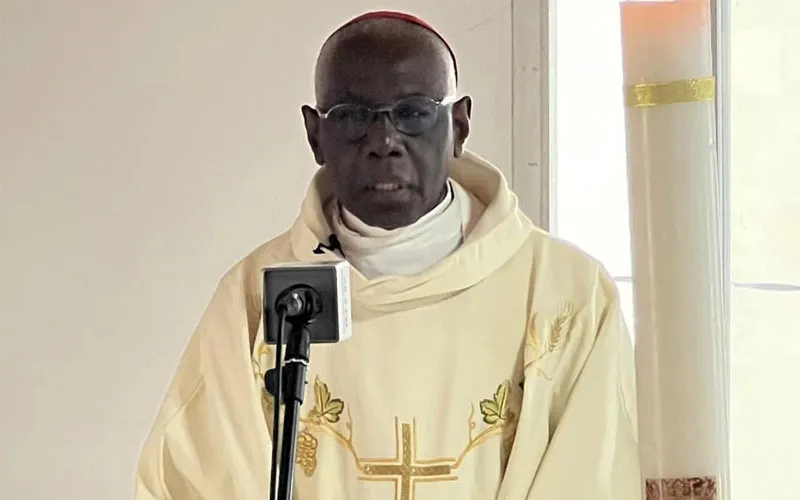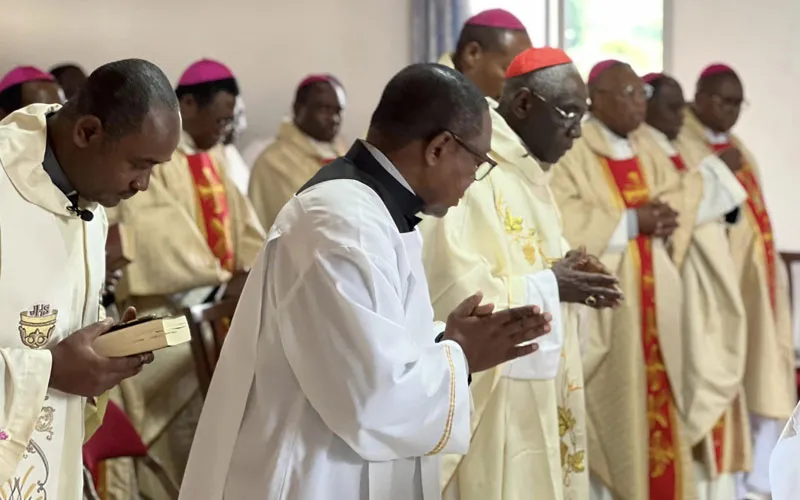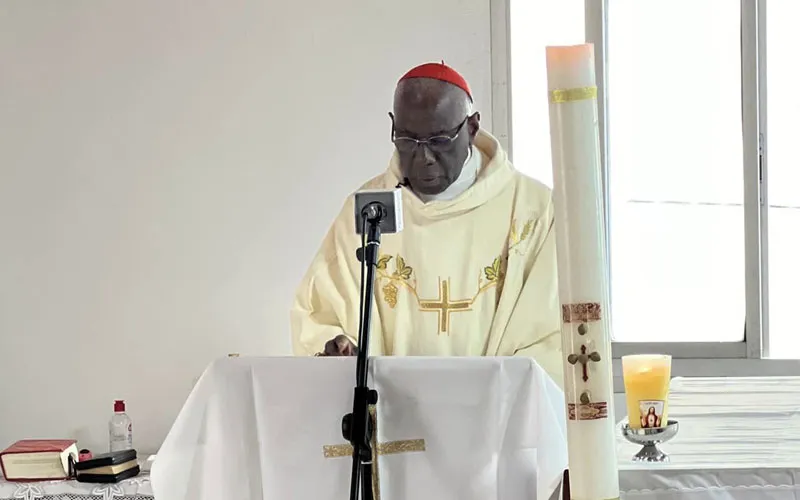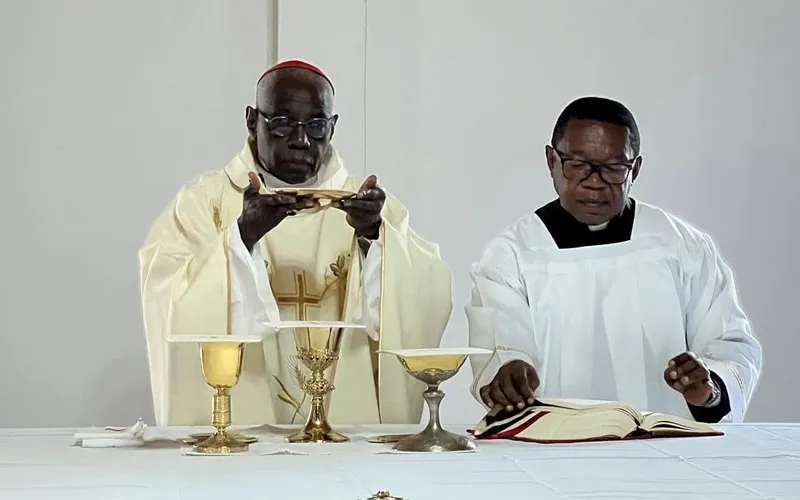He faulted the argument that Catholic Bishops in Africa were opposed to FS mainly because of African traditional cultures, terming it “false and ridiculous”.
 Credit: NECC
Credit: NECC
“Some have asserted, in a logic of intellectual neo-colonialism, that Africans are not yet ready to bless homosexual couples for cultural reasons,” Cardinal Sarah lamented, alluding to the January 11 statement that the leadership of the Symposium of Episcopal Conference of Africa and Madagascar (SECAM) issued, in which reasons for not implementing FS in Africa were highlighted and explained.
SECAM statement, a follow up of the December 20 appeal for opinions on FS from Presidents of Catholic Bishops’ Conferences of Africa and its Islands, cited a previous DDF Declaration on homosexuality, the Catechism of the Catholic Church (CCC), the Sacred Scriptures, and the language used in FS as additional reasons for the reluctance of the Catholic Bishops in Africa to implement the DDF Declaration on the continent.
 Credit: NECC
Credit: NECC
(Story continues below)
“The constant teaching of the Church describes homosexual acts as ‘intrinsically disordered,’” Catholic Bishops in Africa said, referencing the DDF 29 December 1975 “Declaration on certain questions concerning sexual ethics”, Persona Humana.
Referring to NECC members’ opposition to FS implementation in the Central African nation, Cardinal said, “You spoke for the whole Church: in the name of the truth of the Gospel and for the sake of human dignity and the salvation of all humanity in Jesus Christ.”
 Credit: NECC
Credit: NECC
“You spoke in the name of the one Lord, the one faith of the Church. Since when has the truth of the faith, the teaching of the Gospel, been subject to particular cultures? This vision of a faith adapted to cultures reveals the extent to which relativism divides and corrupts the unity of the Church,” the Guinean Cardinal, who is set to conclude his visit to Cameroon on April 12 said.
He called upon Catholic Bishops in Africa to exercise “great vigilance” during the October 2024 Synod on Synodality session, which the General Secretariat of the Synod, the Vatican office coordinating the ongoing synodal consultative process, has highlighted in a four-page December 12 document, titled “Towards October 2024,” that details “the steps to be taken in the months between now and the Second Session of the Synodal Assembly.”
 Credit: NECC
Credit: NECC
“We know that some, even if they say otherwise, will defend a reform agenda. Among these is the destructive idea that the truth of the faith should be received in different ways in different places, cultures and peoples,” Cardinal Sarah lamented, adding, “This idea is merely a disguise for the dictatorship of relativism so strongly denounced by Benedict XVI. Its aim is to allow shortcomings in doctrine and morals in certain places, on the pretext of adaptation to cultures.”
He explained, “They would like to allow the female diaconate in Germany, married priests in Belgium, confusion between ordained priesthood and baptismal priesthood in Amazonia.”
 Credit: NECC
Credit: NECC
“Some recently appointed expert theologians,” Cardinal Sarah said, alluding to Pope Francis’ decision to appoint “Church experts” to study groups to examine 10 themes, including the question of women Deacons and the criteria for selecting candidates to Episcopacy, among other topics.
He added, “Make no secret of their plans. So, they'll say to you with false kindness: Don't worry, in Africa, we won't impose this kind of innovation on you. You're not culturally ready.”
 Credit: NECC
Credit: NECC
The 78-year-old Cardinal, who started his Episcopal Ministry in December 1979 as Archbishop of Guinea’s Conakry Archdiocese emphasized, “We, the successors of the Apostles, are not ordained to promote and defend our cultures, but the universal unity of the faith.”
“We act, in your words, Bishops of Cameroon, in the name of the truth of the Gospel and for the human dignity and salvation of all humanity in Jesus Christ. This truth is the same everywhere, in Europe, Africa and the United States! Just as human dignity is the same everywhere,” Cardinal Sarah said in his address to NECC members on April 9.
ACI Africa was founded in 2019. We provide free, up-to-the-minute news affecting the Catholic Church in Africa, giving particular emphasis to the words of the Holy Father and happenings of the Holy See, to any person with access to the internet. ACI Africa is proud to offer free access to its news items to Catholic dioceses, parishes, and websites, in order to increase awareness of the activities of the universal Church and to foster a sense of Catholic thought and culture in the life of every Catholic.
 Credit: NECC
Credit: NECC



 Credit: NECC
Credit: NECC
 Credit: NECC
Credit: NECC Credit: NECC
Credit: NECC Credit: NECC
Credit: NECC Credit: NECC
Credit: NECC Credit: NECC
Credit: NECC Credit: NECC
Credit: NECC Credit: NECC
Credit: NECC Credit: NECC
Credit: NECC


